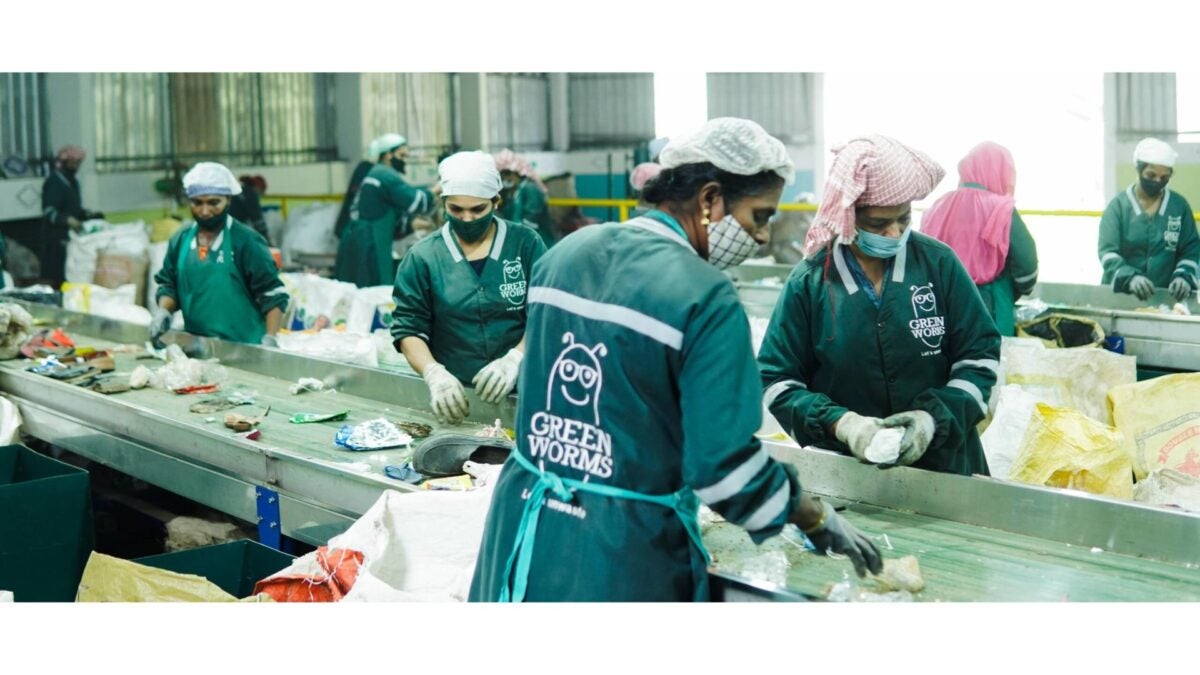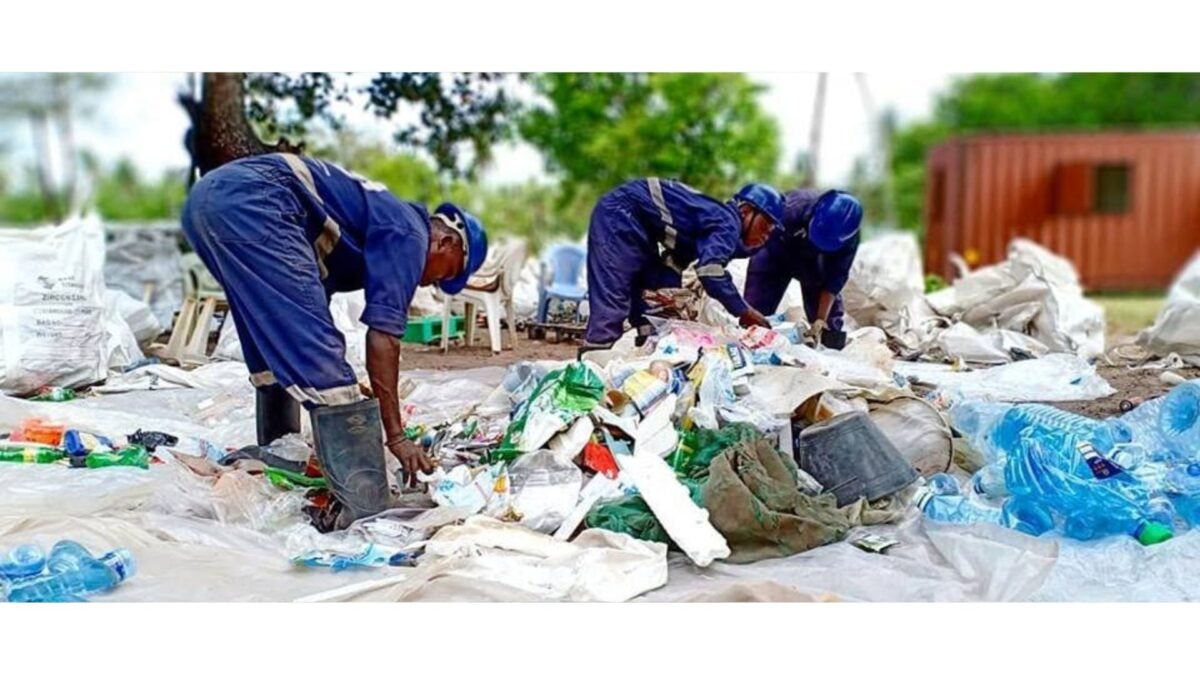ANDE, in collaboration with the IKEA Foundation, has released comprehensive investment guides on the waste management and circularity sectors, spotlighting critical opportunities and financial strategies. Have a closer look at ANDE’s new guides to unlock investment in waste management in Kenya and India.
As global populations soar and urbanization expands, managing increasing volumes of waste requires more innovative, effective solutions. ANDE recognizes the crucial role informed investors play in overcoming these environmental challenges. In collaboration with the IKEA Foundation, we’ve developed detailed investment guides spotlighting opportunities within the waste management and circularity sectors in India and Kenya, aimed at catalyzing impactful environmental and economic growth.
Our Journey: From Research to Detailed Action
Initiated in 2021, our partnership with the IKEA Foundation aimed to enhance support for green entrepreneurial ecosystems essential for climate change mitigation, adaptation, and resilience in India and Kenya. Our foundational research identified a critical barrier—limited access to finance. This challenge stems from a scarcity of local investors, a lack of clarity in green business models, and a prevailing preference for quickly scalable tech solutions.
In response, we launched a targeted initiative focusing on the waste management and circularity sectors. We’ve engaged with a cohort of investors looking to diversify and enrich their portfolios with ventures that promise not only returns but also sustainable impact. This effort has produced the Waste & Circularity Investment Guides, which were unveiled at ANDE’s 2024 Global Annual Conference in Bangkok.
Inside the Guides
These guides are crafted to empower investors by delivering:
- Detailed Insights: Each guide offers a deep dive into viable business models within the waste sector, detailing common revenue models, expected returns, capital needs, and financing stages.
- Real-World Examples: Rich case studies from current practices provide tangible, actionable insights.
- Comprehensive Sector Overviews: We present detailed analyses of significant waste streams in each country, providing a broad view of the sector’s landscape.
These guides, now publicly available, serve as invaluable resources for investors, policymakers, and the financial services sector, informing policy and investment strategies worldwide.
Investment Opportunities in India and Kenya
- India: With its population surpassing 1.4 billion in June 2023, India faces immense challenges in managing the burgeoning waste generated by its growing, urbanizing populace. Daily, about 130,000 to 150,000 metric tonnes of municipal solid waste are produced, projected to rise to 436 million MT annually by 2050. Our guide details opportunities across ten major waste streams—ranging from plastics and textiles to electronic and bio-waste—emphasizing market size, product readiness, policy support, and specific financing needs. Notably, the government’s focus on recycling and circularity, incorporating extended producer responsibility policies, forms a critical part of our analysis.
- Kenya: Economic growth and escalating waste production create significant investment opportunities in Kenya’s waste sector. The country produces over 24,000 tons of waste daily, with more than 75% currently mismanaged, posing severe environmental and health challenges. Our guide highlights potential in high-opportunity sub-sectors such as organic waste, integrated waste management, and wastewater services, discussing the diversity of business models and the environmental benefits of advanced waste management practices. Despite progressive policies, gaps in enforcement underscore the need for innovative, private-sector-driven waste management solutions.
A Call to Action
These guides are more than informational—they’re a call to action for stakeholders across the spectrum. We encourage investors, policymakers, and financial service providers to leverage the detailed insights these guides offer. Together with our partners, Climake in India and KOIS in Kenya, we are committed to driving significant change in waste management and circular economy initiatives globally.
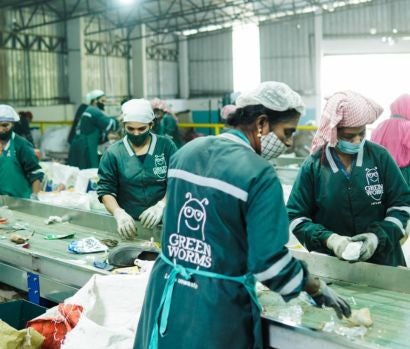
This landscape guide is intended to outline India’s current context in recycling and circularity, with a focus on the investment potential, opportunities and business models in the ten most significant waste streams in India. It provides a framework for how investment potential in a waste stream can be determined, which covers five areas that define that potential: market size and growth; investable start-up pipeline; product readiness; policy support; financing needs and gaps. The guide also includes a historical outline of investments and funding in each waste stream and outlines the roles and participation of various types of equity funders, along with the potential and participation of non-dilutive funding options.
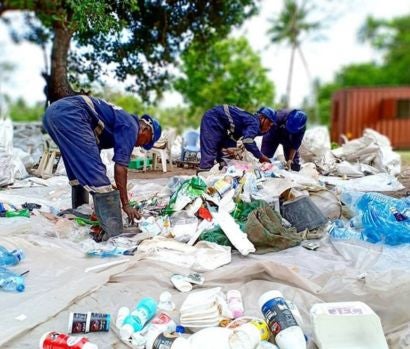
Kenya's waste management and circularity sector offers significant opportunities for investors, driven by economic growth, increasing waste generation, growing regulations and innovations. This introductory guide is the first in a series that also includes investment guides that deep dive into each of the highest opportunity sub-sectors in Kenya’s waste and circularity sector: plastic waste, wastewater, organic waste and integrated waste management. These guides provide further information on trends, opportunities, policies and challenges, as well as further details on the main identified business models and their financing needs and case studies of successful businesses.
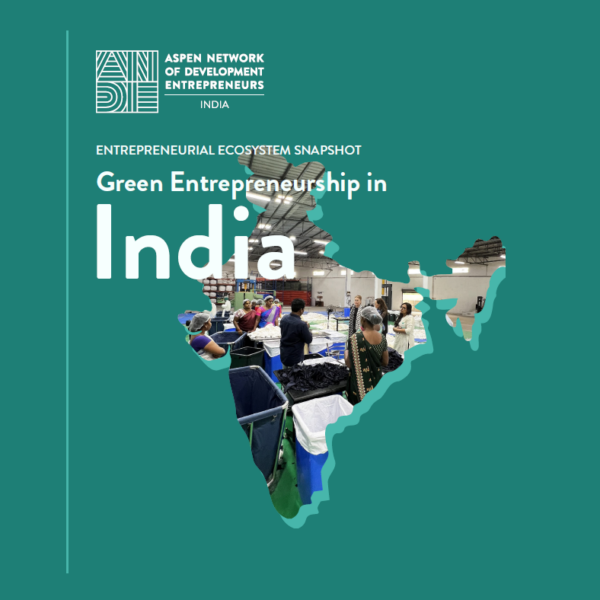
The damaging effects of climate change in India are all-encompassing, threatening agriculture and food supplies, energy security, water security, and public health. To ameliorate climate and environmental challenges, India has committed to a green economic transition through various government policies and initiatives. India has the the world’s third largest entrepreneurial ecosystem after the United States and China, and an increasing number of sustainability-oriented startups, investors, incubators, and accelerators in India is shaping a vibrant green ecosystem. This report examines the ecosystem of support for green entrepreneurs in India. Using data collected via surveys and desk research, this snapshot report uncovers important challenges and opportunities for green entrepreneurship to inform stakeholders of how to better support the development of India’s green economy.
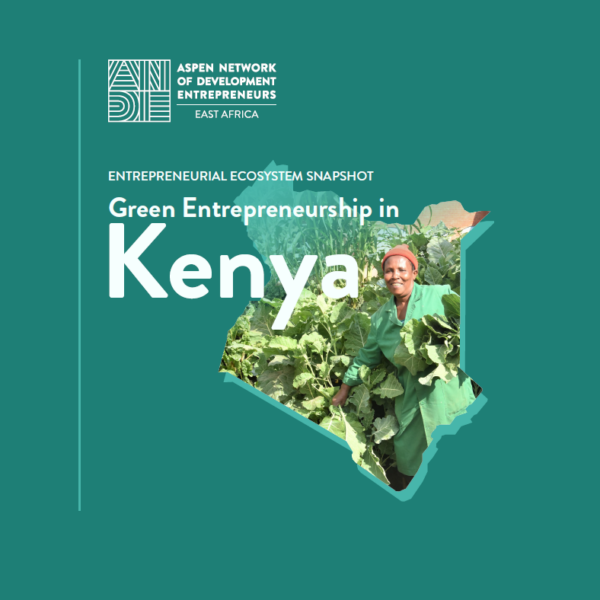
Climate change and environmental degradation pose a significant threat to Kenya’s economy. To combat these challenges, Kenya has supported a green economic transition through various government policies and initiatives. Green entrepreneurs play an important role in helping the country reach these climate and environmental targets by meeting consumer needs in a sustainable manner. This report examines the ecosystem of support for green entrepreneurs in Kenya. Using data collected via surveys and desk research, this snapshot report uncovers important challenges and opportunities for green entrepreneurship to inform stakeholders of how to better support the development of Kenya’s green economy.
Engage with the full depth of investment opportunities these guides unveil to contribute to sustainable waste management solutions globally. For more detailed information and to download the guides, visit the Access to Green Finance Project.

